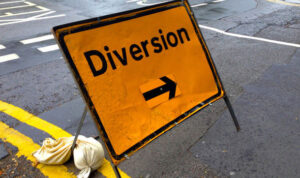Sports Myths, Misconceptions, and Mistakes That Cost You Money
In sports, people don’t just watch but also bet for their favorite club or their fans. Betting in sports goes a long way as a sport itself; it dates back to the Roman Empire, where bettors carried out for gladiators and other physical events.
Of recent betting in sports that can be done online, it now gets more comfortable. In onlinepokerindia.net, it explains more on online betting associated with casinos. Seeing how old and popular sports betting is, it is evident something this old will have myths that have been discovered over the years.
Common sport betting myths that people have come to hear are;
- THE BETTOR VERSUS THE BOOKIE:
The bookie can also be called the sportsbook. In professional sports, it doesn’t work this way. The sportsbook or bookie does not work against or for bettors. Instead, they are just like intermediaries trying to get an even amount of bets on each side of the game. The bookie makes their money on the commission earned from losing bets, and they pay the winning bettors with the losing bets.
To be on the winning side, having 110 to win a 100 or 11 to win a ten on a straight bet is advisable. The bookie’s work is to try and balance the two sides of the game like, for example, the ones losing 100 and winners get 100, so the extra ten goes to the house.
That shows the bookie or the sportsbook tries to get the same amount on both sides. When the balancing of the amount is not equal, the line will be adjusted to get bettors to bet to the other side.
- THE SPORTSBOOK HAS INSIDE INFORMATION:
This sports betting myth is not valid in any way. The information the bettor thinks the bookie has is the same information that as a bettor you can get too. There is nothing like inside information of any sort.
The information gotten by the bookie is obtained from news sources, just like the bettors also do. It is slightly right; bettors see the information the bookie gets as inside information because they get the info faster, which is supposed to be because it is their job.
It is still the same information that the bettors can get if they do their research well.
Photo by Alexander Mils from Pexels
https://www.pexels.com/photo/person-holding-100-us-dollar-banknotes-2068975/
- THE BOOKIE ALWAYS GET THE FINAL LINE RIGHT:
In the real sense, the bookie draws the beginning line, but it is the public betting that causes the line to move and ends up in a certain number. So, in essence, this myth isn’t right; the bettors determine the final line.
When betting in the teams’ hometowns, the betting line tends to be different when done somewhere else. Hometown bets are favorable based on the love from the locals.
WINNING MONEY BETTING ON FAVORITE DOESN’T WORK:
Like explained earlier, the bettors determine the line because they adjust it by them, and the bettors are not always right. It might be a lot of work, but bettors can make a lot of money on favorites. For example, if a game opens at New England 61/2 and a bookie gets enough bets from the other side to lower the line to 51/2, that is a significant 1 point change.
The bettor is a winner instead of a loser, if a win by two field goals or a touchdown, and missed extra points. A smart bettor takes excellent advantage of the change in lines on favorites.
- UNDERDOG WINNINGS IS A DISADVANTAGE TO BOOKIES:
If bookies are doing their jobs by getting an equal amount of bets on each side, then this myth of bookies hating when an underdog wins is false. Instead, if a big underdog should win, it creates more publicity.
For instance, when James “Buster” Douglas went against Mike “iron” Tyson, many people made a lot of money. In the fight between Douglas and Tyson, a bettor at Mirage in Las Vegas put a sum of $1000, walked away with $57000.








